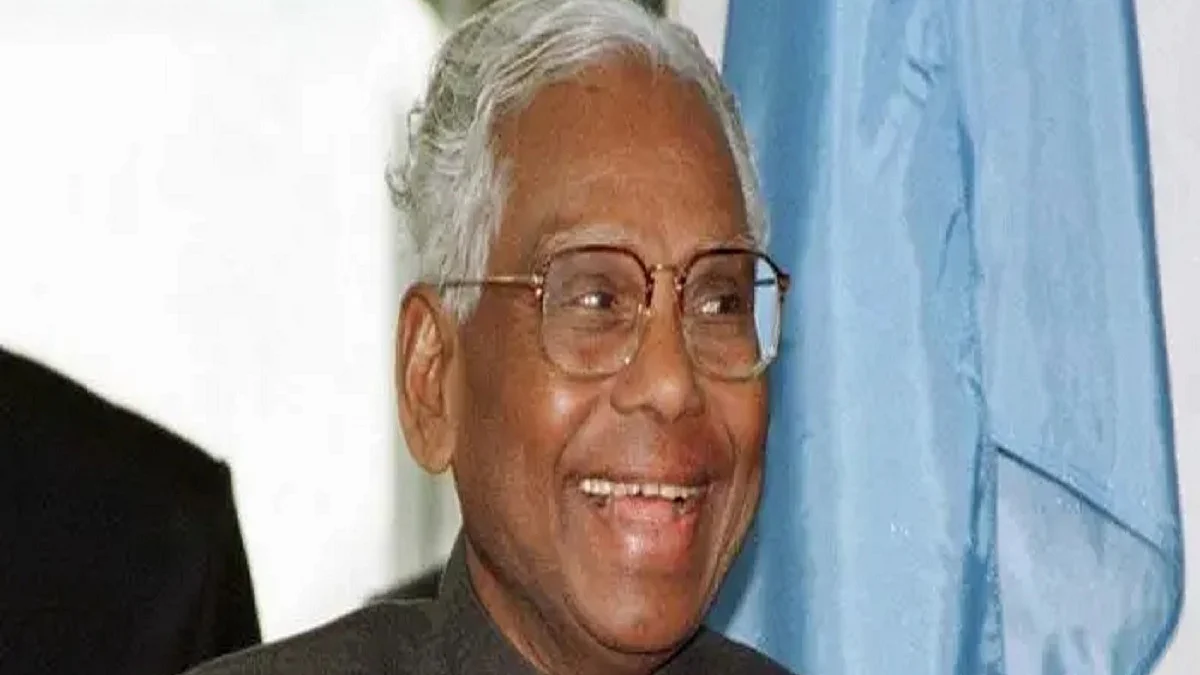Remembering former President K R Narayanan on his birth centenary
Today the nation recalls the exemplary role played by him in preserving, protecting and defending the Constitution which is getting severely compromised now by the forces representing Hindutva

The country gratefully remembers former President of India late K R Narayanan on the occasion of his birth centenary. KR Narayanan was born on October 27, 1920 in a Dalit family in Uzhavoor, now in Kottayam district of Kerala. Through his education he emerged as a great scholar like Dr Ambedkar. After his education he worked as a journalist for The Hindu in 1943 and between 1944-45 with The Times of India. He was also writing for some foreign journals. Later he joined Indian Foreign Service and served as Ambassador of India in several countries including China.
After retiring from Foreign Service in 1978, he was appointed as the Vice Chancellor of Jawaharlal Nehru University (JNU) in January 1979. He remained in that position till October 1980. Then he was elected to the Parliament and became a Minister in the Union government. Later he was elected as Vice President in 1992 and finally became the President of India in 1997.
Today the nation recalls the exemplary role played by him in preserving, protecting and defending the Constitution which is getting severely compromised now by the forces representing Hindutva and wedded to hate culture and polarised politics. No President of our country faced as much challenge to defend the Constitution as he faced and his legendary role in upholding it constitutes an enduring legacy worthy of replication.
When the Vajpayee government floated the proposal to review the Constitution, he raised the red flag by asking sharply - “Let us examine if the Constitution has failed us, or we have failed the Constitution.” That interrogation combined with his moral stature weighed so heavily in favour of the Constitution that the Vajpayee Government instead of reviewing the Constitution set up a Commission to review the working of the Constitution. His inspiring role in defence of the Constitution endures and inspires people to look up to his legacy in these troubled times marked by devaluation and derailment of institutions of governance and assault on the Constitution and constitutional morality.
In fact, when the farm bills in the Rajya Sabha were passed in September 2020, many public figures said that if Narayanan had been the President of India, he would have returned the bills for reconsideration by citing that the Constitution and rules of the House were transgressed in announcing the passage of those legislations.
As a man actuated by empathy, he set a shining example in meeting the people from Gujarat who lost their near and dear ones in the riots that shook that state in 2002 and caused outrage across the nation. Those shocked and distressed victims were denied access to meet Prime Minister Vajpayee and when they met President Narayanan they felt relieved that at least at the highest level of the Republic there was someone who could hear and express solidarity with them.
Narayanan adopted a confluential approach to understand history and historical personalities to interpret the past and the ongoing dynamics of our society. That confluential approach was demonstrated in his understanding of the enduring significance of Mahatma Gandhi, Jawaharlal Nehru and Dr. B R Ambedkar in shaping the destiny of India and ushering in the process for liberation and empowerment of people and generating impulses for progressive social change.
He poetically summed up their extraordinary contributions by saying that "If Mahatma Gandhi introduced a moral purpose, shall one say a moral soul, as well as a mass dimension to the Indian National Movement and if Jawaharlal Nehru introduced a social and economic dimension and a world vision, Dr. Ambedkar brought to it a profound social content and a passionate protest against social inequalities and oppression”.
In fact his worldview was greatly shaped by such a confluential understanding of three outstanding leaders of modern India and he got actuated by their common outlook and common touch for the suffering humanity.
Today those who are in power keep talking about “reform, perform and transform”. But K R Narayanan with a foresight cautioned, “The economic reforms through liberalization and globalization should not ignore this weaker majority – the Scheduled Caste and the Scheduled Tribes, the women who toil day and night and make life worth living in our homes”.
K.R. Narayanan was so prophetic and with great pains observed that the question of caste system and problem of Scheduled Caste and Tribes as explosive one. “Unless this colossal social and economic problem is tackled within a conceivable period, there will be convulsions which will disturb the unity and stability of India”.
It is very tragic that secularism is being mocked at by the people holding high constitutional offices. In doing so they are mocking at the Constitution, the ethos of freedom struggle and the ideal of ‘sarva dharma samabhava’ - coexistence of all faiths. It is instructive to note that K R Narayanan very insightfully observed that "In the Indian context of a multi-religious, society secularism is the product of history as well as a practical necessity for harmonious living and for the survival of the State". Therefore, he stressed on positive task of social modernisation and cultivation of the spirit of secularism at the comprehensive levels of religion, community, politics, culture and patterns of daily life.
Today when the processes of social modernisation are being stalled in the name of majoritarianism, Hindutva and other narrow identities, we are confronting an existential crisis. The legacy of President Narayanan rooted in an approach upholding the Constitution and constitutional morality and affirming the pluralistic and secular credentials constitute the remedy to address the challenges confronted by our Republic in the twenty-first century.
(The writer is General Secretary, CPI)
Follow us on: Facebook, Twitter, Google News, Instagram
Join our official telegram channel (@nationalherald) and stay updated with the latest headlines